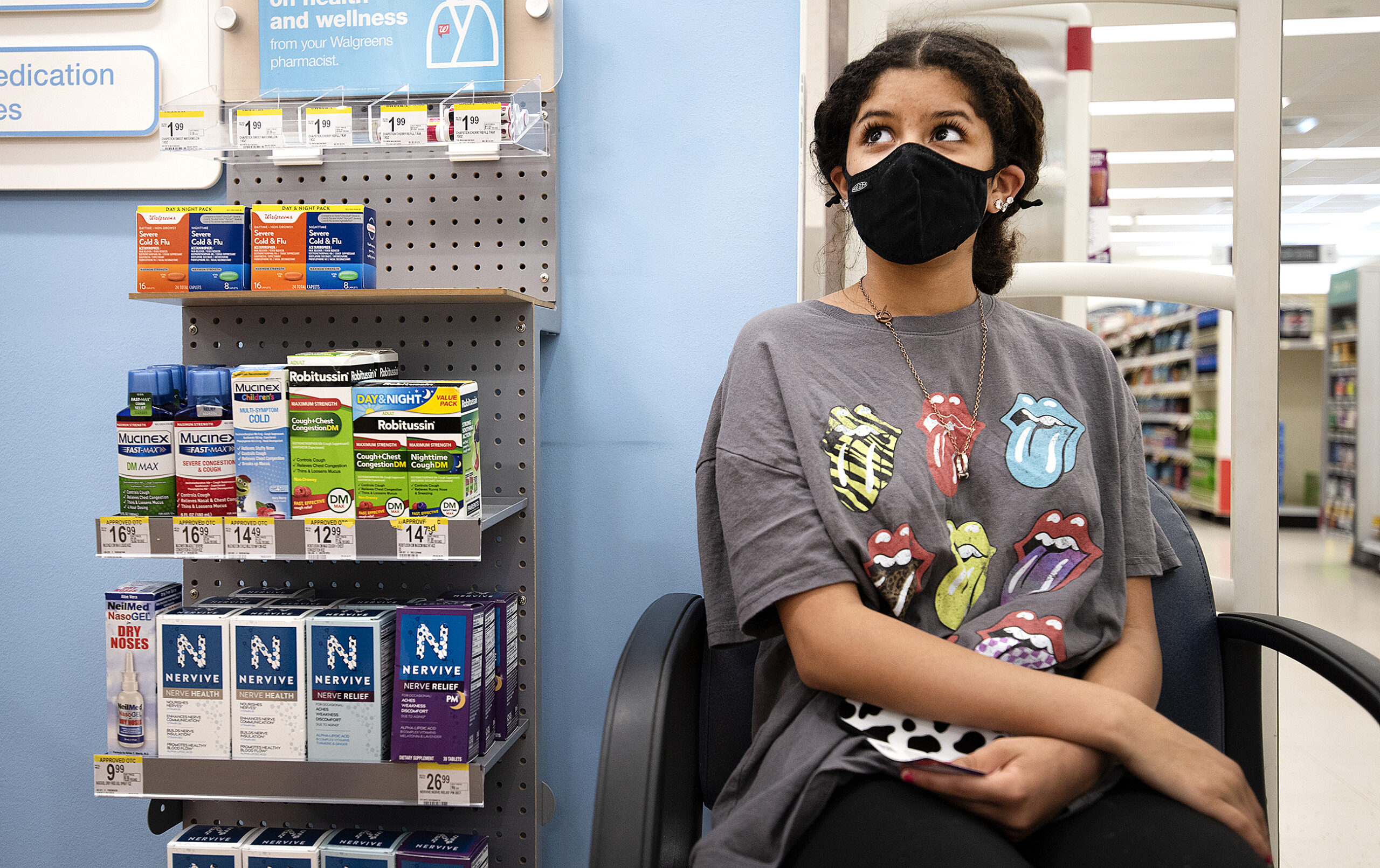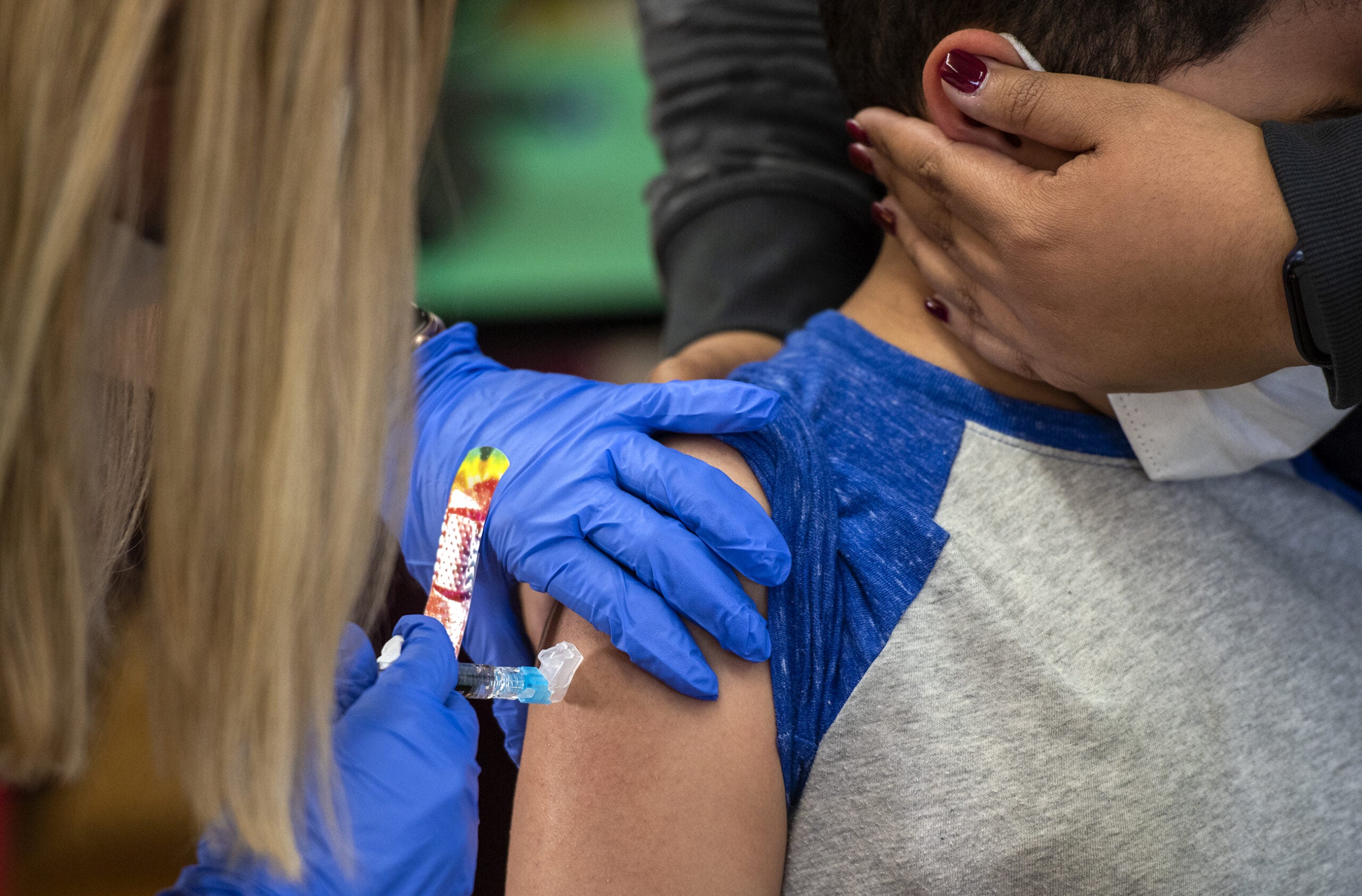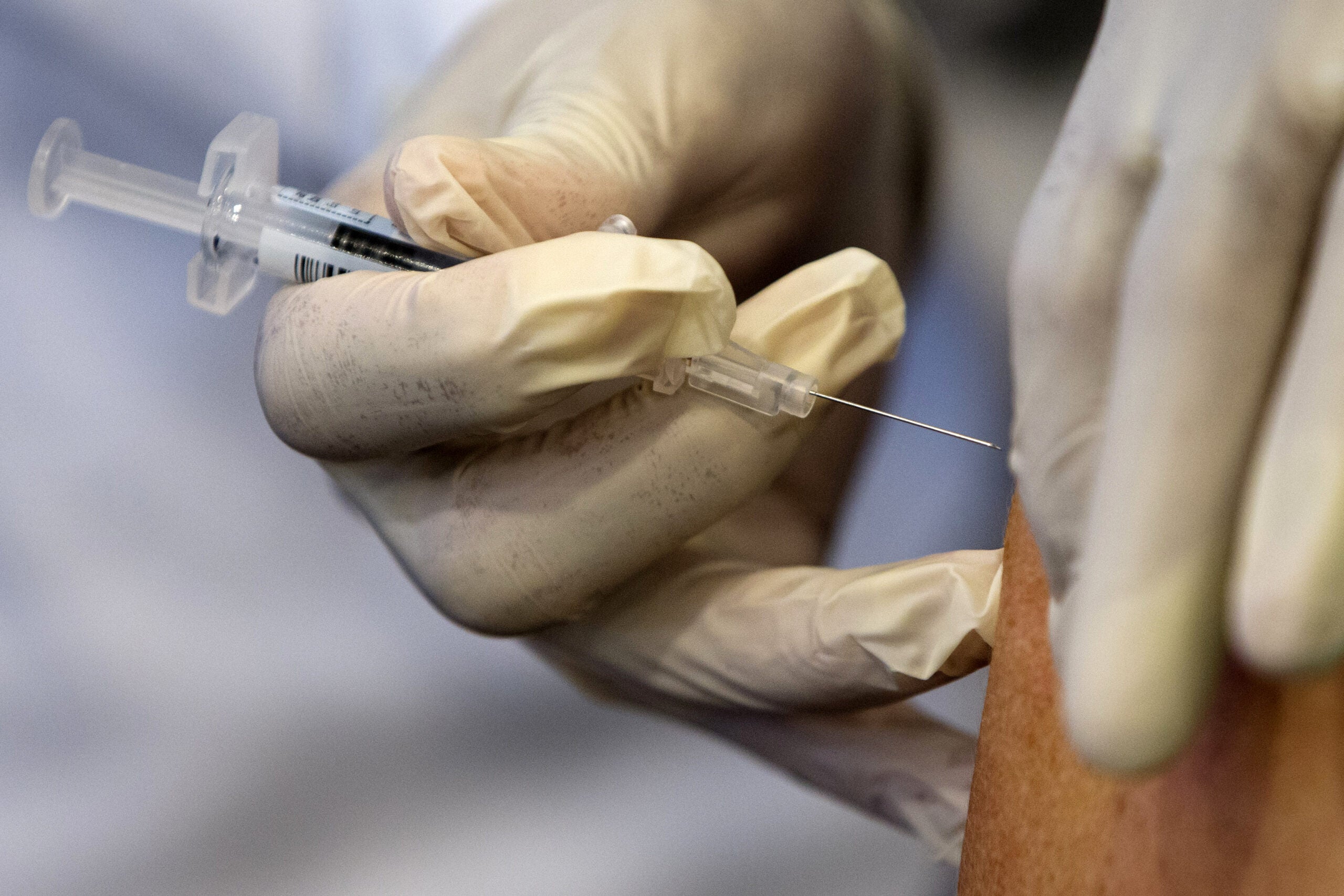One week after children ages 12 to 15 became eligible for the COVID-19 vaccine, state data show huge regional differences in how quickly this population is getting it in Wisconsin.
In Dane County, nearly 30 percent of children ages 12 to 15 have already had their first dose. At a press conference on Thursday, Janel Heinrich, director of Public Health Madison and Dane County, said she expects to see even more progress.
“By June 2, we expect that over half of this age group will have received at least one dose,” Heinrich said.
News with a little more humanity
WPR’s “Wisconsin Today” newsletter keeps you connected to the state you love without feeling overwhelmed. No paywall. No agenda. No corporate filter.
Dane County has some of the highest rates of COVID-19 vaccination in the nation for large counties. But elsewhere in the state, progress in vaccinating eligible children looks very different. In Clark County, where vaccinations have lagged in all age groups, only 1 percent of newly eligible children have gotten a vaccine. Statewide, 9.8 percent, or about 28,910, children in this group have been vaccinated in the last week.
In many places, that translated into a rush of vaccinations immediately after eligibility expanded. But the pace hasn’t necessarily kept up.
“The first wave, certainly, was met with great enthusiasm,” said Dr. Kevin Dahlman, a pediatrician with Advocate Aurora Health who practices in the Milwaukee area. “A lot of kids came in. And then after that first wave came and went, and we’ve seen the numbers drop a little bit.”
That isn’t necessarily a surprise to public health leaders. Dahlman said some parents are hesitant or have questions about the vaccine that they want to talk through. But it’s also simply a busy time for families, including the newly eligible middle- and high-schoolers.
“This time of year, kids are busy with end-of-year activities,” he said. “Kids are getting ready for graduations, signing up for summer activities, studying for finals.”
That might mean that the pace of vaccinations for eligible children will pick back up during the summer, at least for families for whom convenience is a hurdle. Dahlman noted that he routinely sees children in the summer for well-child check-ups and required sports physicals, and those visits will be a “natural time” to talk to parents about getting their kids the COVID-19 vaccine.
In the meantime, though, public health agencies across the state are also hosting vaccine clinics in schools as part of efforts to reach newly eligible children and, perhaps, their unvaccinated parents. In Beloit, Edgerton High School held one on Thursday; schools in Milwaukee, Sun Prairie and elsewhere have also offered clinics at which parents can have their children ages 12 and up vaccinated.
Forty-six percent of Wisconsinites have had at least one dose of COVID-19 vaccine, and more than 40 percent have completed their vaccine series. Wisconsin has seen slow but steady declines in new COVID-19 infections for several weeks.
The more people in all age groups who are vaccinated, the harder it will be for the virus to circulate. Including kids ages 12 to 15, about 86 percent of the state’s population is eligible for a vaccine now. The remaining 14 percent are children younger than 12. White House chief medical adviser Dr. Anthony Fauci said this week that he expects young children to be able to get vaccinated by the end of the year.
Vaccine hesitancy remains a public health problem, but Dahlman said he has seen at least some cases where the reality of the COVID-19 pandemic has pushed hesitant families in the direction of favoring vaccines of all kinds.
“I’ve seen some surprising situations in which some of my vaccine-hesitant families … are now coming in and saying, we understand what a pandemic is now,” Dahlman said. “I do want my child to get vaccinated for all the standard immunizations now.”
Wisconsin Public Radio, © Copyright 2026, Board of Regents of the University of Wisconsin System and Wisconsin Educational Communications Board.




